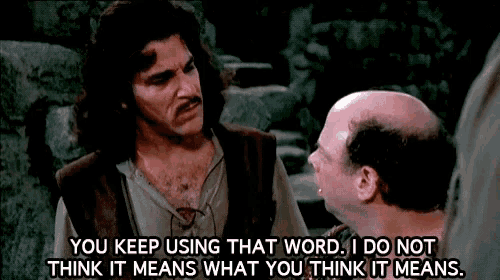Related Articles
When Sen. Karen Keiser, D-Des Moines, opened a recent work session for the Senate Labor and Commerce Committee, she said that the state's law on long-term care was passed by the Legislature on a “bipartisan basis.” As Inigo Montoya said in "The Princess Bride," “You keep using that word. I do not think it means what you think it means.”
The law that created WA Cares, proposed in House Bill 1087, cannot be described as bipartisan legislation. By the time the bill made its way through the legislative process, it was passed on a party-line vote in the House of Representatives and had just one Republican senator voting in favor of it. The closest the bill got to bipartisan support was in opposition to it.
The “nay” voters in the Senate included three senators, among them Sen. Mark Mullet, D-Issaquah. Mullet said of Initiative 2124, the initiative that could make WA Cares optional in November, “Initiative 2124 enables working individuals to choose not to participate in the Washington Cares Fund, a long-term care payroll tax program. I voted against starting Washington Cares in the first place, and I have a lot of concerns about it. It’s taking money out of folks’ paychecks for a benefit many people will never be able to take advantage of. I support this initiative.”
The lone Republican vote for HB 1087 in the Senate was cast in part so the senator could have a seat at the table of negotiation about a bill on its way to passage with or without her support. Sen. Judy Warnick, R-Moses Lake, does have a seat at the table on the Long-Term Services and Supports Commission, which oversees WA Cares. Warnick said the oversight group has tried to tweak the law to make it “more palatable,” “more workable.” Then she told me, “It’s not going to be workable.”
With all the senator knows now about how WA Cares will be implemented and how many workers won’t be helped by it, she said, “In my opinion, it is not going to be the benefit we thought it would be. I think the best we could do is to make this an optional program.” She supports Initiative 2124.
Warnick continued, “I’m very concerned that we are giving people the wrong impression about how much they will receive from this program when they need long-term-care support."
It’s true that workers cannot have the “peace of mind” that some state agencies and lawmakers are pushing. Even those who do end up qualifying for WA Cares someday will receive an inadequate benefit for services and supports. (See my recent commentary in The Spokesman Review about the cost of care increasing and the WA Cares benefit sitting still.)
For those who don’t qualify for a WA Cares benefit, many will have had a portion of their wages taken during their working years to supply a benefit to people with more income and greater resources and who do not need taxpayer support.
Safety nets are important to Washingtonians. Shifting wages from low-income workers to people who are not in need is not popular, nor should it be.
Not a tax?
The “bipartisan” introduction to WA Cares might not have been the most inaccurate thing said at the work session. At the beginning of the committee meeting that was centered on four different taxpayer-provided programs, Keiser said, “Today, we are going to be looking into the financial status and standards, as well as the potential future financial and policy decisions and developments, for our state’s four, huge social insurance programs that are for working people and for our economy.” I agree with the “huge” part.
“These are multi-billion dollar programs,” Keiser continued. “They are not taxpayer-funded programs.”
What?
These programs are funded through taxes on employers and workers. In the case of WA Cares, workers pay a payroll tax of 58 cents on every $100 they earn. Calling the payroll tax a “premium,” as Keiser, other proponents of WA Cares and state agencies are trained to do, does not change the fact that taxes fund WA Cares.
Washington state workers having to pay a tax for a benefit that many will never see is one of the reasons why the program does not have bipartisan support.






